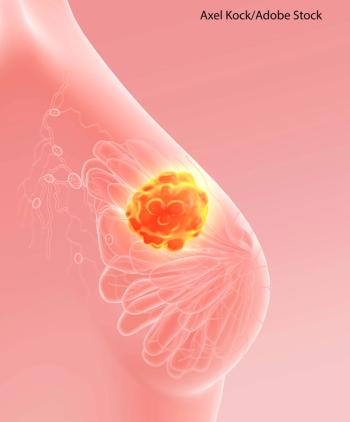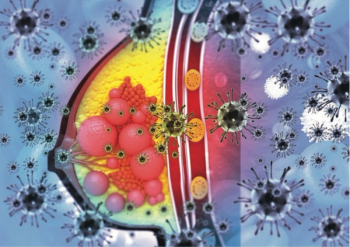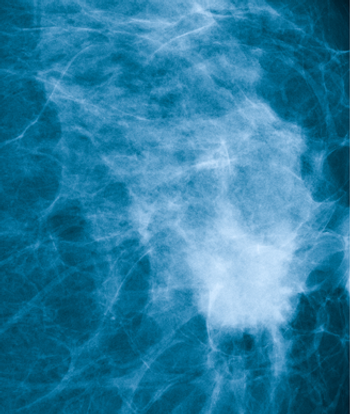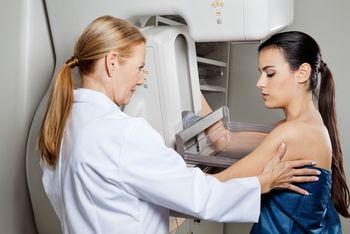
As more agents become approved, it’s important to individualize therapy for this patient population, Sara A. Hurvitz, MD, said at the 37th Annual Miami Breast Cancer Conference.

Your AI-Trained Oncology Knowledge Connection!


As more agents become approved, it’s important to individualize therapy for this patient population, Sara A. Hurvitz, MD, said at the 37th Annual Miami Breast Cancer Conference.

The study found that 31 to 60 days seems to be the ideal time period to begin adjuvant chemotherapy in HER2-positive breast cancer patients.

This study sought to determine the patient and tumor characteristics associated with positive lymph nodes status in T1 HER2-positive breast cancer.

During the 2018 Miami Breast Cancer Conference, cardiologist Dr. Jean-Bernard Durand discussed protecting patients who are being treated with anthracyclines and HER2-targeted therapies from serious cardiac adverse events.

At the 2018 Miami Breast Cancer Conference, Dr. Patrick Borgen presented information related to gene expression profiling as a tool for managing DCIS.

During the 2018 Miami Breast Cancer Conference, Dr. Sara Hurvitz discussed current management options for patients with early-stage HER2-positive breast cancer.

During the 2018 Miami Breast Cancer Conference, Dr. Elizabeth A. Mittendorf discussed immunotherapy concepts and strategies related to breast cancer.

Surgical oncologists can help reduce the risk of patients developing opioid dependence.

Breast conservation therapy is usually best for local treatment for stage II breast cancer-and biology, as well as stage, drives patient outcomes.

Despite breast tumors’ lower mutational loads than lung cancers and melanoma-cancers in which immunotherapy have shown particular promise-breast cancers are nevertheless immunogenic.

The United States Medicare Access and CHIP Reauthorization Act of 2015 quality- and payment-related provisions took effect January 1, 2017, and how oncologists comply this year will determine their payments in 2019.

Refining the American Joint Committee on Cancer breast cancer staging system to include molecular tumor markers will improve patient risk stratification and determination of prognosis.

Timing remains an important challenge for breast reconstruction in patients undergoing radiation therapy and surgery for breast cancer.

Recent findings have raised doubts about the promise of whole-brain radiation therapy against metastatic brain tumors for patients with advanced breast cancer.

Breast surgeons can and should provide genetic counseling to their patients because the need outstrips the availability of genetic counselors.

We spoke with breast imaging radiologist Dr. Elizabeth Morris on imaging vigilance for women at high risk of developing breast cancer.

In this interview we discuss research into cancer vaccines and checkpoint inhibitors for the treatment of breast cancer.

Working with Watson, IBM’s Jeopardy!-winning computer, oncologists are developing new supercomputing tools for treatment decision support.

Oral agents and “watchful waiting” might make it possible to delay or avoid overtreatment with surgery and radiotherapy for many women diagnosed with ductal carcinoma in situ.

Following breast-conserving surgery for ductal carcinoma in situ (DCIS), younger women face a higher risk than older patients for recurrence of both DCIS and invasive carcinomas.

Two leading breast cancer experts debated the proposition that platinum-based or other additional systemic agents should be used in difficult-to-treat cases of high-risk triple-negative breast cancer.

Clear guidelines about the utilization of MRI in breast cancer detection and management are needed, as the modality is being overused in women for whom it offers few benefits (and potential harms), and underused when it might be appropriate.

Breast density legislation is based on a misunderstanding of density’s association with cancer risk, and clinicians should focus not on density per se, but density residuals-the difference between a patient’s predicted and actual breast density.

In a review of axillary management, it was found that regional node irradiation is likely important in reducing distant metastasis in high-risk breast cancer.

With increasing maternal ages worldwide, patients undergoing breast cancer treatment while pregnant is becoming a more common experience in clinical oncology.

In this interview we discuss chemoprevention in breast cancer, including investigational agents and the use of herbal supplements.

Not all DCIS is dangerous, and the prognostic genomic Oncotype DX DCIS Score allows for routine risk stratification of patients to avoid unnecessary treatment.

In this interview we discuss the current challenges to treating triple-negative breast cancer and look at avenues of promising research.

Targeted axillary dissection improves axillary staging and pathologic evaluation of residual nodal involvement after chemotherapy in node-positive breast cancer.

The idea that breast cancer is overdiagnosed is being perpetuated in an effort to reduce access to breast cancer screening, according to a presentation at MBCC.